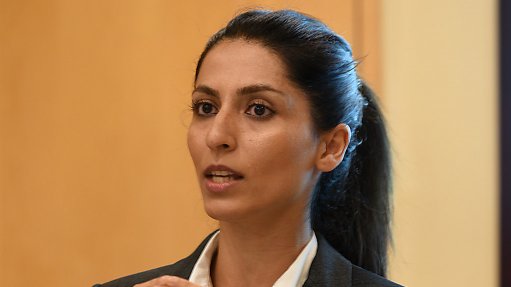
NEDA TAGHADOSI Clients can access e-learning courses and gap-analysis tools to evaluate their level of compliance to the new standards
Global megatrends and social changes brought about by the use and integration of digital technologies in personal, commercial and industrial processes are changing testing, verification, certification and compliance processes, and are placing new demands and requirements on businesses to ensure safety and quality, such as the need for cybersecurity and data protection.
The robustness of new systems must be evaluated to ensure that modern inspection, testing, verification and certification processes are effective and provide the trustworthiness required to ensure health, safety, environmental and quality compliance, says verification and certification multinational Bureau Veritas Africa senior VP Marc Roussel.
“Bureau Veritas continues to adapt to the changes across industries, including developing new skills to ensure that digital systems and processes reinforce and support compliance and quality standards, for example, by certifying that a website is safe or that a company complies with cybersecurity best practice standards and regulations.”
The company serves as an expert adviser and partner to clients along their value chains and benchmarks its advice on international standards and industry best practices. Consequently, each of the firm’s divisions has created new services for client industries, adds Roussel.
Bureau Veritas Southern Africa certification division head Neda Taghadosi highlights the changes in the recently published International Standards Organisation (ISO) 9001 and ISO 14001, as well as the upcoming ISO 45001, specifically noting the simplified language and high-level structure. These changes make the requirements of the standards less prescriptive and present an opportunity for all companies, regardless of size, to tackle the certification of their operations in an integrated manner.
Bureau Veritas has put in place digital solutions such as elearning courses and gap-analysis tools to enable clients to evaluate their level of compliance with the new standards.
The company has also introduced electronic certificates, which are commonly used in the aerospace industry, which reduces costs and time. Owing to successful roll-out of electronic certificates in the aerospace industry, planning is under way to introduce electronic certificates in other sectors.
“More sensors and more data mean that we need more efficient ways of leveraging the data. Bureau Veritas teamed up with data analytics specialist firm Avitas Systems in December to develop data-driven inspection services,” highlights Roussel.
Bureau Veritas is focused on integrating the new systems with its clients’ systems. Specifically, the firm is looking at the most easily achievable, and least disruptive, ways of leveraging digital technologies and information systems. Digital technologies provide lots of new opportunities for the firm to add greater value for clients, he adds.